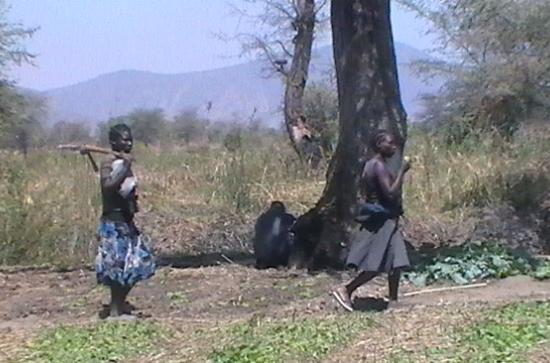
Maynooth University Launches new International Masters in Transformative Community Development
Climate change threatens the livelihoods of rural communities in many parts of sub-Saharan Africa where agriculture is predominantly rain-fed and subsistence farming is the norm. With climate change the area suitable for agriculture, the length of growing seasons and yield potentials are expected to dramatically decrease, adversely affecting food security and exacerbating malnutrition.
The Transformative Engagement Network (TEN-Hunger), funded by Irish Aid and the Higher Education Authority, seeks to work with vulnerable rural communities to help transform their capacity to cope with the challenges of climate change, particularly around issues of food security and nutrition.
To this end, the departments of Geography, Adult and Community Education and Biology at Maynooth University, together with three African universities (University of Mzuzu, Malawi, Mulungushi University, Zambia and the Zambian Open University) are launching an innovative Masters in Transformative Community Development that brings together over thirty academics across disciplines to focus on issues of climate change and food security in three communities in vulnerable regions of Zambia and Malawi. Its 36 full funded students across 3 African universities comprise professionals in governmental and non-governmental agencies who work daily with these communities.
Dr Conor Murphy of the TEN team highlights that “changes in rainfall are already having a devastating effect on farming practices. In many instances traditional coping strategies are ineffective while uptake of technology and altered practices has been slow for many complex reasons.”
Prof. Anne Ryan believes that “building relationships between Universities and local communities allows the voices of the most vulnerable to feed into the research and teaching agendas of Universities, while the links to policy that Universities hold are critical to ensuring the wellbeing of communities.”
During the project, students and staff will work closely with communities to understand the barriers and opportunities encountered in adapting to climate change. Prof. Martin Downes highlights that “the lessons we learn from these communities of remarkable survivors will be stored in a dedicated repository that will make them available to everyone to use in easing the effects of climate change.”
Dr. Bernie Grummell added that “for Irish Universities the benefit of such engagements is great. We can get a real sense of the experiences, strengths and needs of vulnerable communities and we can integrate these into our teaching and research.”
The TEN-hunger network is funded by Irish Aid and the Higher Education Authority under the Programme for Strategic Cooperation. The interdisciplinary team at Maynooth University includes:
Professor Anne Ryan, Dr. Bernie Grummell and Mrs. Maggie Noone, Department of Adult and Community Education.
Professor Martin Downes, Department of Biology
Dr. Conor Murphy, Department of Geography and the Irish Climate Analysis and Research Units (ICARUS).
